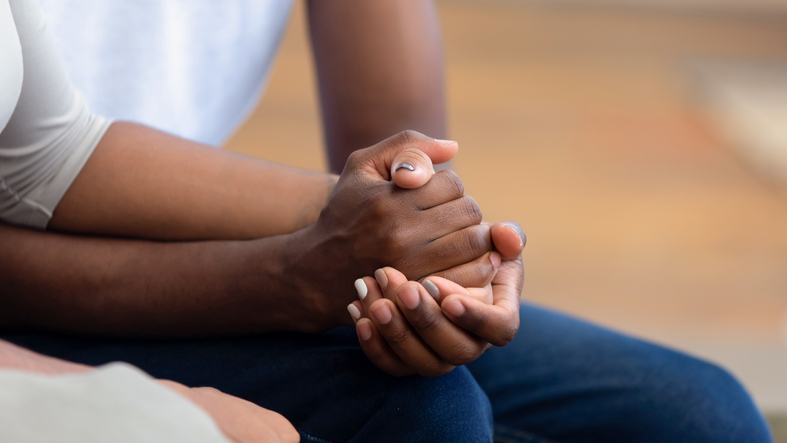We drove the back streets of one of the poorest neighborhoods in Dallas, seeking out those stuck in an endless cycle of poverty, homelessness and hopelessness. In the back of the car, within easy reach, were several bags and purses filled with necessities for daily survival. Our focus was younger women still of child-bearing age, for these bags held not only snacks, soap and toothbrushes, but also the necessities that make a monthly menstrual cycle more bearable. Occasionally we would pause in the street and watch as a woman looked into the bag. The smile of discovery was everything for me. I was homeless at one time, so I know exactly how this kindness feels to a broken soul.
The first principle of Unitarian Universalism: We affirm and promote the inherent worth and dignity of every person. As a group with a long history of social justice and action work, it is not enough to accept that all are worthy. We must work to ensure they have their needs met. We find ourselves called to address injustices, from housing to environmental, from climate change to poverty. Some march in protest; some work with the prison system. Often we struggle to keep the balls in the air while trying to simultaneously live a personal life. Social justice is a noble and an exhausting goal.
Compassion fatigue is a very real problem. We wake up to social media timelines filled; failures in our political system. School shootings have become as commonplace as makeup tips. Many wake up with feelings of dread, wondering what calamity is calling for another battle cry. Some cry themselves to sleep and cry out to the heavens, “when will it be my turn?” Like a soldier dragged into battle, the enervation is palpable. And, just as with the soldier, the warrior for social justice can experience depression and suicidal feelings.
Too often those of us who fight against injustices view ourselves as Don Quixote without a loyal Sancho Panza by our side. Because we are members of the human race, and social creatures, this feeling of being one against the immoral does not serve us well. It is time we join with those of like mind and create a new paradigm that is less about the battle and more about the small actions that move us toward the goal.
When you are struggling with compassion fatigue there are things you can do to find your way back without losing your mind.
• Engage in self-care. Recognize when you are getting to the point of weariness and take a day off. Read a book, watch a movie or take time to engage in a hobby. Allow yourself a stretch of time when your life is about you.
• Go out and enjoy nature. The Unitarian Universalist Church of Oak Cliff has a labyrinth on the grounds that is a wonderful place to reconnect with the spiritual side and enjoy the beauty of the world around us. The surrounding wooded areas also provide solace and serenity. Anyone is welcome to take advantage of this small slice of heaven within the city limits.
• Find your purpose. It’s not realistic to take on every source of injustice we see in the headlines. You are but one body, and it’s essential you find something that you believe in so strongly that you find yourself filled with determination and direction. For myself it is the issue of homelessness. For one of my friends it is the environment. Ask yourself, what is the one cause you feel you have the best chance of making a difference? Listen to your heart and follow that path.
• Gather your social network. Join a group that best represents the topic that speaks to you. There you will find the people who will be there when things get tough and will celebrate the victories with you.
—Ella Beth Ferree is the Social Justice Ministry Chair at the Unitarian Universalist Church of Oak Cliff.





